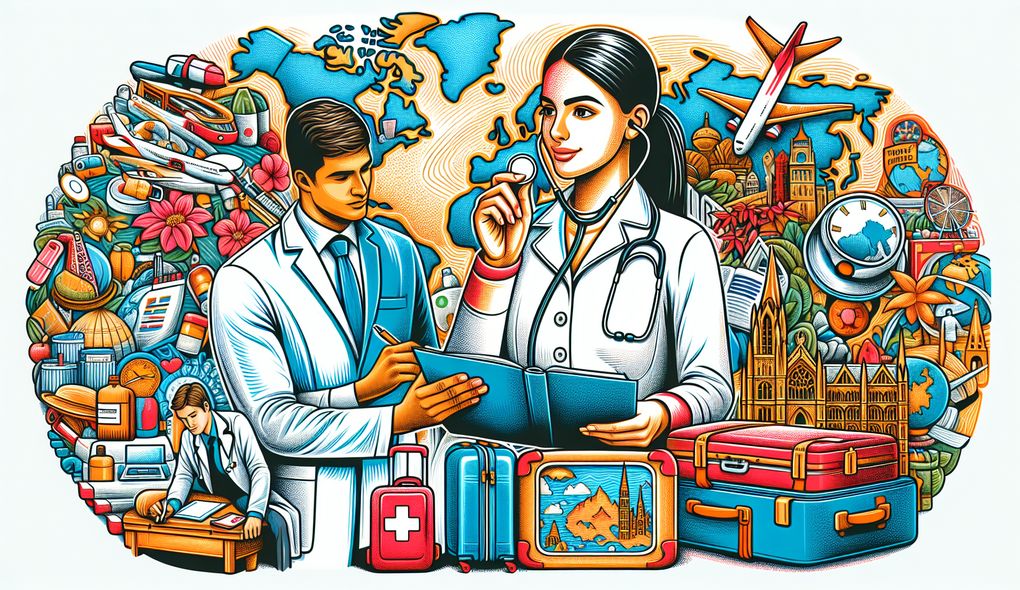How do you determine the specific health needs of a patient before they travel?
SENIOR LEVEL

Sample answer to the question:
When it comes to determining a patient's specific health needs before they travel, I start the assessment by asking about where they are planning to travel. Once I have that information, I consult CDC guidelines and other professional resources to understand the health risks in those destinations. I ask about their general health condition, and check their medical history. I also take stock of which vaccinations they've had, if they’ve had any reactions to the vaccines in the past, and whether they are currently taking any medications. Finally, I educate them on health precautions for their specific destination and offer advice on how to manage their health while traveling.
Here is a more solid answer:
When a patient comes to me prior to travel, I first use our electronic health record (EHR) system to review their medical history and understand their overall health status. I investigate their chronic conditions, medication list, and previous vaccination record. Then, I ask targeted questions about their travel plans, which include the travel destination, length of stay, and type of accommodation. I also ask lifestyle-related questions such as frequent dietary habits and physical activities. This information allows me to tailor a plan suited to their needs. Leveraging my knowledge in travel medicine and accessing reliable resources such as the CDC, WHO guidelines, and professional travel health databases, I assess the health risks associated with their travel destination. This understanding informs the guidance I provide on necessary vaccinations, prophylactic medications, and health/safety practices suitable to the patient's health status and their specific travel plans.
Why is this a more solid answer?
This is a solid answer because, in addition to outlining the process, the candidate demonstrates both theoretical knowledge and practical competency. The answer shows both the use of a systematic approach to patient assessment and excellent communication skills exhibited by the use of targeted questions to fill any gaps in patient information. The candidate also shows that they stay up-to-date with current health advisories by using resources such as CDC and WHO guidelines and professional travel health databases. However, there is room for improvement as the candidate could demonstrate more about their proficiency in patient education.
An example of a exceptional answer:
Determining a patient's specific health needs before they travel begins with a comprehensive review of their electronic health record (EHR), in-depth interviews, and physical assessment. I pay close attention to their pre-existing conditions, allergies, medication regimen, and immunization history. I wholeheartedly engage the patient with clear communication, asking in-depth questions about their lifestyle habits, diet, and the nature of their planned travel - the country, duration, activities, type of accommodation, and even their meal plans. I then consult multiple health databases such as CDC, WHO, and ProMED-mail, along with travel advisories, to thoroughly understand the current health risks tied to their travel destinations. Using the gathered information and my expertise, I devise a personalized health plan for them, including necessary vaccinations, potential prophylactic treatments, dietary guidelines, and basic health and safety procedures. When educating them, I adopt a patient-friendly language, provide printed materials with key information, and ensure understanding through the teach-back method. Lastly, I document every detail in our EHR system and remind them about follow-up visits or assessments after their travel.
Why is this an exceptional answer?
This answer is exceptional because it demonstrates a high level of competence in all areas specified in the job description. It highlights the candidate's autonomy, ability to provide patient-centered care, proficiency in using EHR systems, extensive research and analysis skills, and their comprehensive approach to patient education. The use of in-depth questioning, reliable resources, patient-friendly language, and follow-up strategies reflects excellent patient education and counseling abilities. The answer also outlines the process comprehensively, detailing each step and providing a window into the candidate's decision-making capabilities.
How to prepare for this question:
- Make sure to familiarize yourself with the most up-to-date travel health advisories. You should know where to find them and how to interpret them.
- Develop your ability to analyze a patient’s medical history. This tells you more about their overall health status, potential risks, and necessary precautions.
- Practicing clear and effective patient education is key. Understand that not every patient has a medical background, so be able to explain health concepts and guidelines in a straightforward and accessible way.
- Be prepared to talk about your use of EHR (Electronic Health Record) systems. Emphasize how they help you in reviewing patient histories and documenting assessments.
What are interviewers evaluating with this question?
- Knowledge of travel medicine
- Patient education and counseling abilities
- Proficiency in travel-related health research

